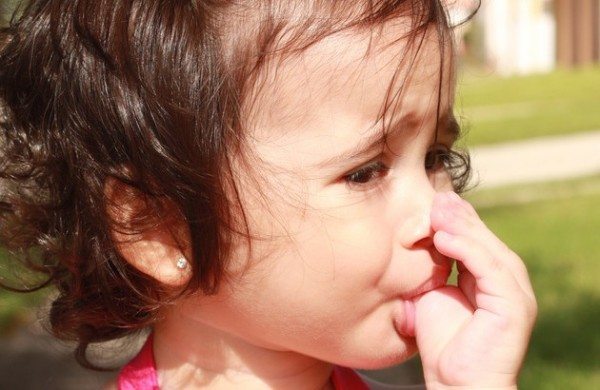One of the biggest concerns we hear from parents is their child's thumb-sucking habit. Our advice: If you are under 4 years old, don't worry. However, as you get older, you need to start thinking about the possible effects of the bite. Thumb-sucking is a universal habit among infants and young children and is related to how they swallow when breastfeeding.
When they swallow, their tongue is pushed forward to create a seal with their lips around the breast or bottle nipple. Many pediatricians believe that thumb sucking repeats the breastfeeding process and thus has a calming effect on the baby. To get rid of this habit, you can buy tguard thumb via https://www.amazon.co.uk/Age-2-7-Stop-Thumb-Sucking/dp/B00VQU2DZS.

Image Source: Google
However, around the age of 4, this type of ingestion begins to turn into solid food. The tongue begins to rest behind your upper front teeth as you swallow. For most children, this is also a time when the thumb sucking habit diminishes and eventually stops.
But for some reason some kids don't quit. As the habit continues, the tongue continues to move forward, not toward the front teeth over the back. This can put unnecessary pressure on the upper and lower front teeth over time and contribute to the development of an open bite, the small gap between the upper and lower teeth when the jaw is closed.
Although thumb sucking is not the only cause of an open bite in late childhood (abnormal growth of the jawbone is another cause), habit is still an important factor. For this reason, it is important to encourage your child to stop thumb sucking by age 3 and no later than 4 years.
